Orciprenaline
- CAS NO.:586-06-1
- Empirical Formula: C11H17NO3
- Molecular Weight: 211.26
- MDL number: MFCD00599526
- EINECS: 2095691
- SAFETY DATA SHEET (SDS)
- Update Date: 2024-10-23 13:36:13
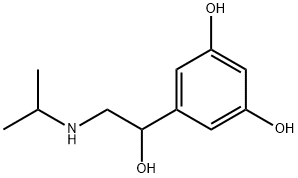
What is Orciprenaline?
Absorption
3% (oral bioavailability of 40%)
Toxicity
Symptoms of overdose include angina, hypertension or hypotension, arrhythmias, nervousness, headache, tremor, dry mouth, palpitation, nausea, dizziness, fatigue, malaise and insomnia. LD50=42 mg/kg (orally in rat).
Originator
Alupent, Boehringer Ingelheim ,W. Germany ,1961
The Uses of Orciprenaline
Bronchodilator.
Indications
For the treatment of bronchospasm, chronic bronchitis, asthma, and emphysema.
Background
A beta-adrenergic agonist used in the treatment of asthma and bronchospasms. [PubChem]
Definition
ChEBI: Metaproterenol is a member of phenylethanolamines.
Manufacturing Process
In an initial operation, 3,5-diacetoxyacetophenone was reacted first with
bromine and then with isopropylamine to give 1-(3,5-dihydroxyphenyl)-2-
isopropylaminoethanone.
59 g of 1-(3,5-dihydroxy-phenyl)-2-isopropylaminoethanone (free base) were
dissolved in 590 cc of methanol, and the solution was hydrogenated in the
presence of about 80 g Raney nickel at room temperature and under a
pressure of 5 atm. Hydrogen absorption was terminated after a few minutes.
The catalyst was separated by vacuum filtration, and the filtrate, an ethanolic
solution of 1-(3,5-dihydroxyphenyl)-1-hydroxy-2-isopropylaminoethane, was
admixed with the calculated amount of an alcoholic 20% sulfuric acid solution.
A crystalline precipitate formed which was filtered off and washed with
alcohol. For purification, the product was dissolved in water and the solution
was filtered through iron-free charcoal.
Thereafter, the filtrate was evaporated to dryness in vacuo and the residue
was taken up in alcohol. The crystalline precipitate which separated out after
some standing was separated by vacuum filtration and washed with alcohol.
After recrystallization from 90% alcohol, 61 g (83.2% of theory) of 1-(3,5-
dihydroxyphenyl)-1-hydroxy-2-isopropylamino-ethane sulfate, MP 202° to
203°C, was obtained.
Therapeutic Function
Bronchodilator
Pharmacokinetics
Orciprenaline (also known as metaproterenol), a synthetic amine, is structurally and pharmacologically similar to isoproterenol. Orciprenaline is used exclusively as a bronchodilator. The pharmacological effects of beta adrenergic agonist drugs, such as orciprenaline, are at least in part attributable to stimulation through beta adrenergic receptors of intracellular adenyl cyclase, the enzyme which catalyzes the conversion of adenosine triphosphate (ATP) to cyclic- 3',5'- adenosine monophosphate (c-AMP). Increased cAMP levels lead to relaxation of bronchial smooth muscles and inhibition of the release of inalammatory mediators from mast cells that are involved in promoting immediate hypersensitivity .
Clinical Use
Metaproterenol was the first β- sympathomimetic drug with metabolic stability to achieve wide clinical use.
Metabolism
Hepatic and gastric. The major metabolite, orciprenaline-3-0-sulfate, is produced in the gastrointestinal tract. Orciprenaline is not metabolized by catechol-0-methyltransferase nor have glucuronide conjugates been isolated to date.
Properties of Orciprenaline
| Melting point: | 100° |
| Boiling point: | 350.94°C (rough estimate) |
| Density | 1.1240 (rough estimate) |
| refractive index | 1.5718 (estimate) |
| pka | 9.11±0.10(Predicted) |
| CAS DataBase Reference | 586-06-1(CAS DataBase Reference) |
Safety information for Orciprenaline
Computed Descriptors for Orciprenaline
New Products
4-AMINO-TETRAHYDRO-PYRAN-4-CARBOXYLIC ACID HCL 4-(Dimethylamino)tetrahydro-2H-pyran-4-carbonitrile 4-Aminotetrahydropyran-4-carbonitrile Hydrochloride (R)-3-Aminobutanenitrile Hydrochloride 3-((Dimethylamino)methyl)-5-methylhexan-2-one oxalate 1,4-Dioxa-8-azaspiro[4.5]decane 5-Bromo-2-nitropyridine Nimesulide BP Aceclofenac IP/BP/EP Diclofenac Sodium IP/BP/EP/USP Mefenamic Acid IP/BP/EP/USP Ornidazole IP Diclofenac Potassium THOMAIND PAPER PH 2.0 TO 4.5 1 BOX BUFFER CAPSULE PH 9.2 - 10 CAP SODIUM CHLORIDE 0.1N CVS ALLOXAN MONOHYDRATE 98% PLATINUM 0.5% ON 3 MM ALUMINA PELLETS (TYPE 73) LITHIUM AAS SOLUTION 2-Bromo-1-(bromomethyl)-3-chloro-5-nitrobenzene 2-Bromo-3-nitroaniline N-(3-Hydroxypropyl)-N-methylacetamide 3-Bromo-6-chloropyridazine 4-ethyl-3-nitrobenzoic acidRelated products of tetrahydrofuran
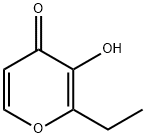
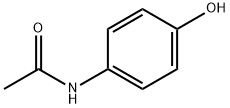

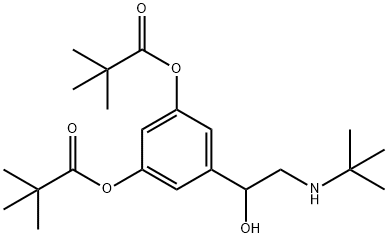
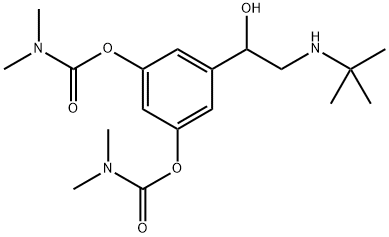
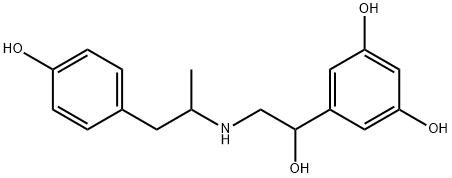
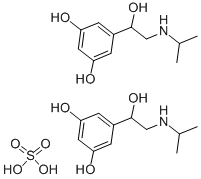

You may like
-
 1-Methyl-6-oxo-1,6-dihydropyridazine-3-carbonitrile 98%View Details
1-Methyl-6-oxo-1,6-dihydropyridazine-3-carbonitrile 98%View Details
99903-60-3 -
 88491-46-7 98%View Details
88491-46-7 98%View Details
88491-46-7 -
 1823368-42-8 98%View Details
1823368-42-8 98%View Details
1823368-42-8 -
 2-(3-(tert-butyl)phenoxy)-2-methylpropanoic acid 1307449-08-6 98%View Details
2-(3-(tert-butyl)phenoxy)-2-methylpropanoic acid 1307449-08-6 98%View Details
1307449-08-6 -
 Ethyl 3-(furan-2-yl)-3-hydroxypropanoate 25408-95-1 98%View Details
Ethyl 3-(furan-2-yl)-3-hydroxypropanoate 25408-95-1 98%View Details
25408-95-1 -
 2-Chloro-5-fluoro-1-methoxy-3-methylbenzene 98%View Details
2-Chloro-5-fluoro-1-methoxy-3-methylbenzene 98%View Details
1805639-70-6 -
 1784294-80-9 98%View Details
1784294-80-9 98%View Details
1784294-80-9 -
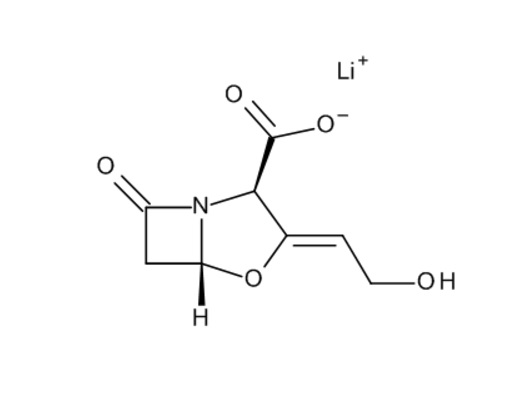 Lithium ClavulanateView Details
Lithium ClavulanateView Details
61177-44-4